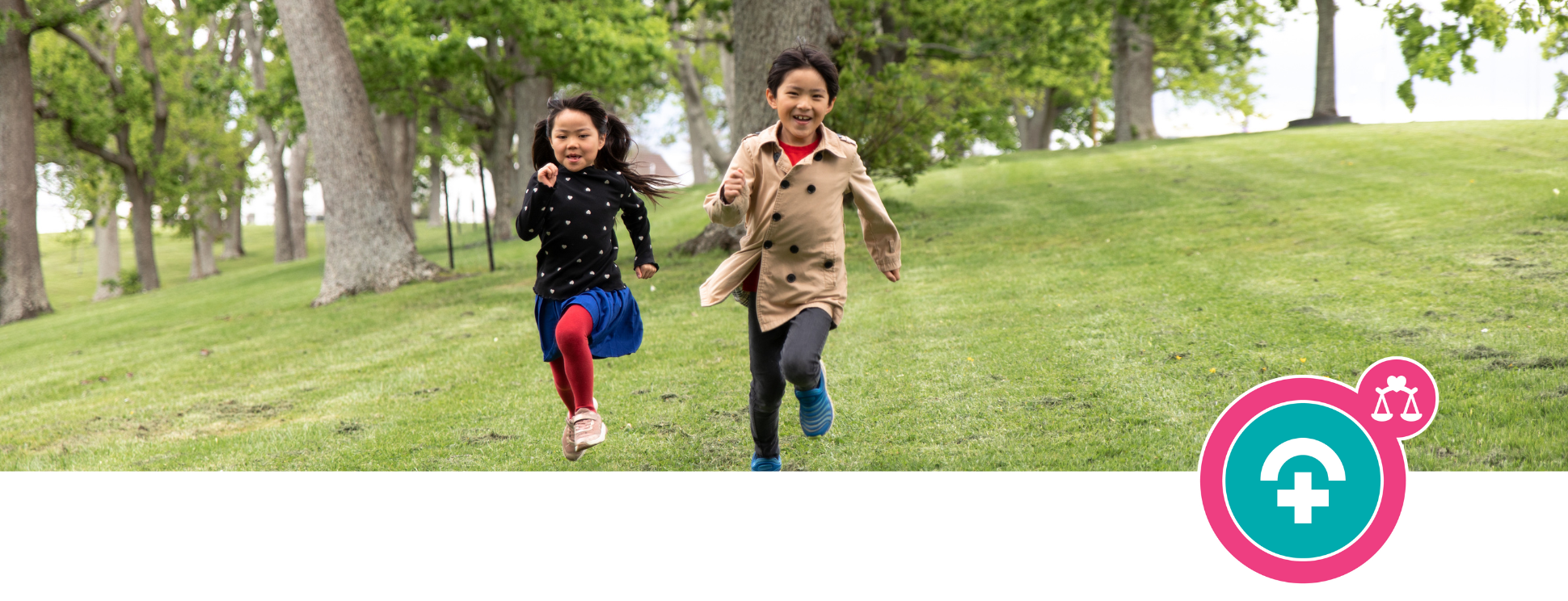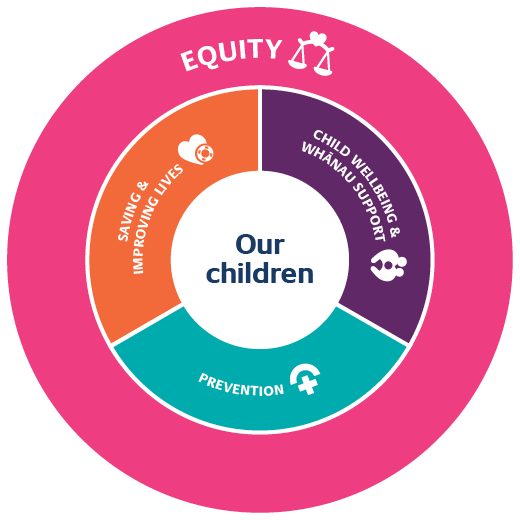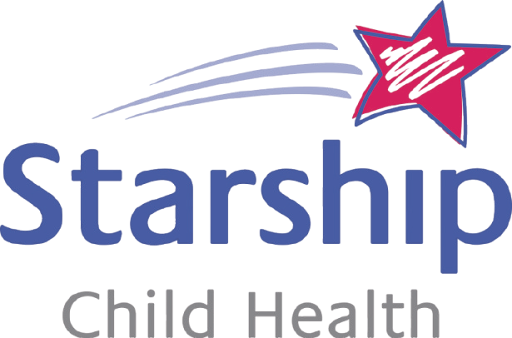Prevention
Keeping children healthy and in their communities
We enable digital initiatives, community care, research and innovation to prevent hospitalisation and foster wellbeing. So our children are safe and thriving in their community.

"Māori and Pacific children are over-represented in unintentional injuries at all levels in Aotearoa. Over the past fourteen months, Safekids Aotearoa has invested in transformative change to its digital strategy to address these systematic inequities."
Mareta Hunt, Director, Safekids Aotearoa
In 2021, the Starship Foundation funded numerous projects and initiatives to help keep children out of hospital and thriving in their own communities.
We continued to provide funding for our Whare Hauora in-school nursing clinics, with planning well underway for a possible third clinic to be built at the start of 2023.
356 appointments in two operational Whare Hauora clinics in 2021
The Starship Foundation was also proud to continue funding Safekids Aotearoa’s in-home safety advice to prevent childhood injuries. Their highly effective online content resonates strongly with Māori and Pacific audiences, with 667,006 post engagements reflecting strong connection and cut-through.
89.1% Safekids’ viewers intended to make safety improvements after watching Falls Prevention Month content
Funding for the Script App was also continued in 2021. Since it went live in 2019, the app has been an outstanding success, making it easier and quicker for healthcare professionals at Starship and across the country to accurately prescribe medication for children.
Script App has been used 2 million times by 15,000 individual users since launch.
With continued support from Five Star Partner Mercury, we’ve also helped fund the Healthy Homes initiative, providing curtains and heating for households that needed them. Keeping homes warm and dry helps children stay healthy during cooler winter months, and greatly reduces preventable hospital admissions.
Healthy Homes supported 492 households and fitted 237 homes with thermal curtains.
In addition, Starship launched the Village app, a mobile phone application to help young people with mental health struggles communicate with people they trust. We also funded a Child Protection Community Educator pilot programme, helping train and upskill frontline workers to identify, support, and make referrals if they’re worried about a child’s safety.
Thank you not only for helping Starship provide brighter futures for children inside the hospital… thank you for helping us keep them safe and well in their own communities.
Improving clinical treatment pathways leads to better health outcomes for all
Mum Stevie was concerned when her daughter Melek was diagnosed with cellulitis, a common and potentially serious skin infection. How would she care for her other two children should Melek be admitted to hospital? However, with the support of Starship
clinicians, Melek was given antibiotics and allowed to go home.
Stevie says she appreciated the support which empowered her to decide what was right for her family. She’s also grateful for the care provided by the Starship Community Nurse who treated Melek at home over the following week.
Each year approximately 530 children present to Starship Clinical Emergency Department (CED) with cellulitis. A large proportion of these presentations and hospital admissions are Māori and Pacific tamariki.
Thanks to supporters like you, the Starship Foundation funds the Clinical Pathways project. It aims to identify and implement better strategies and treatments across the hospital, providing care that's consistent and more responsive to children and families' needs.
Sarah Wilson, Clinical Pathways and Outcomes Programme Manager, says the cellulitis pathway was one of the first developed. “We worked alongside clinicians from multiple different services, sought input from our Māori and Pacific health partners and reflected on the feedback we had received from whānau over the years. With all this collaboration we then set about redesigning the experience for whānau and their mokopuna presenting to Starshipwith cellulitis.”
Standardising the treatment pathway has led to a 60% reduction in admission rates for Māori and Pacific tamarki with cellulitus and reduced the length of hospital stays. The whānau-centred community support has allowed more children like Melek to be cared for at home.
The Clinical Pathways project now spans multiple hospital services including Orthopaedics, Infectious Diseases, Respiratory and Starship Community, combining worldwide clinical evidence with local expertise to provide the best outcomes for tamariki and whānau.
Warmer and drier homes reduce respiratory illnesses
Every winter children across Aotearoa New Zealand are admitted to hospital with health conditions exacerbated by cold, damp housing. This includes illnesses such as the common cold, influenza, respiratory syncytial virus (RSV), bronchiectasis and rheumatic fever. Children from Māori and Pasifika families are far more likely to be affected.
Starship alone treats 15,000 children with respiratory conditions each year.
Changes to recent rental property laws mean houses must be adequately insulated and a source of heat provided by the owner, but these changes don’t address the biggest source of heat loss in a home – windows. Best practice, thermally insulated curtains help create a warmer, drier living environment.
One person who experienced first-hand the impact of having curtains installed is Brittany Hageaiki. Brittany’s children aged ten, four and one have been hospitalised with asthma, RSV and bronchitis. Health conditions which are exacerbated by winter cold.
"Before we had curtains, it was always damp and cold,” says Brittany. “We always used our dehumidifier and our power bill was extremely high.” She says that the curtains have made a huge difference to the warmth of their home and their power bill has decreased. “Normally through winter the kids are really bad,” she adds, “this winter we’ve had no problems.”
With your help and Mercury funding, we’ve supported 1593 families through the Habitat for Humanity Healthy Homes programme. Families like Brittany’s who are at risk of ending up in hospital with preventable illnesses that result from, or are made worse, by living in damp cold houses.
You can find out more about your impact at the links below or read the complete 2021/2022 Starship Foundation Impact Report
Previous Starship Foundation Impact Reports can be found here.

